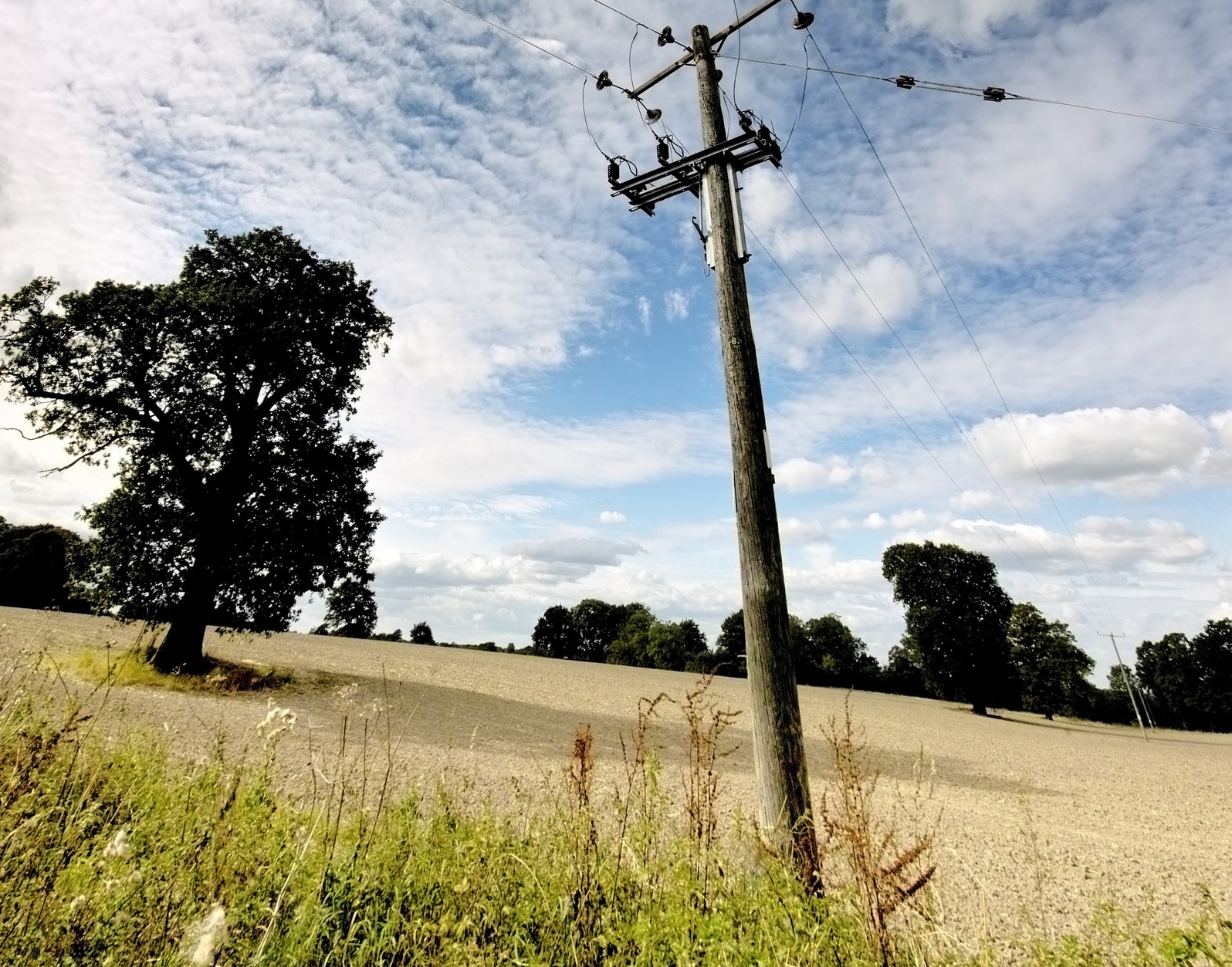UK rural broadband: too little, and too late
FOI requests suggest that Government-based plans to bring fast broadband to rural areas have made little progress. But there are more barriers than official inaction alone.

Rural communities are be prized by city dwellers for their slower pace of life. But no-one envies rural areas when it comes to their lack of affordable, high-speed broadband.
And recent research by a pressure group has found that four, much-heralded pilot schemes to bring fast broadband to some of the UK's most isolated areas seem to have stalled. The projects are part of a wider commitment by Government to improve rural communications infrastructure.
The Countryside Alliance claimed today that four schemes, announced by Chancellor George Osborne in October 2010, have achieved little towards delivering faster internet access, despite a budget in excess of 40m. The pilot schemes cover Herefordshire, Cumbria, North Yorkshire and the Scottish Highlands and Islands.
According to answers to Freedom of Information requests submitted by the Countryside Alliance, Herefordshire and the Highlands and Islands Council have not yet spent any funds on their rural broadband projects.
Cumbria County Council stated that "the work on preparation for the broadband project has been provided from within Council resources deployed on the procurement of its own ICT partnership," whilst North Yorkshire said that it has spent approximately 500,000 of its own funds, out of a budget of 950,000 allocated to NYnet, a broadband company wholly owned by the council.
The Countryside Alliance's chief executive, Alice Barnard, condemned the delays. "It has been over a year since these pilots were set up and the people who live in areas with no or unreliable broadband coverage haven't seen any improvement," she said. Without more action by councils, the money pledged will remain "all but worthless".
Pilot councils, for their part, argue that the Countryside Alliance's FOI requests fail to take into account either the way the projects are funded, or the complex nature of building out broadband infrastructure in rural areas. As officials in Cumbria told the pressure group, Government funds are only drawn down once the councils have spent money on rolling out services.
Sign up today and you will receive a free copy of our Future Focus 2025 report - the leading guidance on AI, cybersecurity and other IT challenges as per 700+ senior executives
And, although the Alliance remains concerned that councils are failing to prioritise the work, and draw on Government financial support, experts from the IT and telecoms industry say that councils face both technical and practical hurdles to building out broadband infrastructure.
"It is very unlikely that councils will need to access the funds until such time as physical infrastructure construction is about to start," said Andrew Ferguson, co-founder of consumer website Thinkbroadband.com.
"In some ways if councils are able to self-fund the early stages of the consultation, design and procurement process, then it means the bulk of the funds will be available for actual solutions to improve broadband coverage and speeds." Rules concerning tendering for public sector contracts, as well as the need to mix core services and smaller sub-providers, who might be offering part of the service, may also be delaying roll outs.
Community action
And councils are also struggling to bring together the specialist resources and expertise to tackle a complicated technical challenge, according to industry observers. Council ICT departments are being asked to solve problems that have proved too complex for commercial internet service providers, and mobile operators.
"Right now there's not enough in it for industry to roll out rural broadband for themselves; local councils have their work cut out making efficiency savings; and people on the ground are being asked to form collectives, with only limited success," says Jon Collins, an industry analyst and the chairman of the Coates Village Hall Management Committee.
"As long as we have a situation where the telecommunications industry is waiting for people to show sufficient demand before they will do anything, progress will be inevitably slow."
As an alternative to council-led or commercial projects, some communities have started to create their own high-speed broadband networks, based around fibre or wireless technologies. Wales, Devon and Somerset have grants for satellite broadband services, says Thinkbroadband's Ferguson, and there has also been faster progress in Northern Ireland.
But, according to Collins, the fragmented nature of funding for rural broadband projects, along with the lack of a central knowledge base for technical solutions, is as great a barrier as the finance itself.
"Imagine the ability for a rural parish council to go to a single information source, review viable, appropriate [service] options and get a clear idea of costs, and a view of what help is available," he says. "We don't have this. We have a thousand fragmented initiatives, county-wide. Some of which will succeed but the rest -- as shown by the evidence -- will drag.
"As long as rural broadband is not treated as a national infrastructure project, this situation will prevail."
-
 Asus Zenbook DUO (2026) review
Asus Zenbook DUO (2026) reviewReviews With a next-gen processor and some key design improvements, this is the best dual-screen laptop yet
-
 Pegasystems wants to help you modernize outdated Lotus Notes applications
Pegasystems wants to help you modernize outdated Lotus Notes applicationsNews The Notes to Blueprint tool lets enterprises understand their Lotus Notes estates and get rid of broken workflows
-
 UK government to fund regional tech programs up to £20m
UK government to fund regional tech programs up to £20mnews Local and regional partnerships invited to bid for support for established or developing projects
-
 Three things you need to know about the EU Data Act ahead of this week's big compliance deadline
Three things you need to know about the EU Data Act ahead of this week's big compliance deadlineNews A host of key provisions in the EU Data Act will come into effect on 12 September, and there’s a lot for businesses to unpack.
-
 Government’s ‘Humphrey’ AI tool helps local authorities cut costs
Government’s ‘Humphrey’ AI tool helps local authorities cut costsNews The Minute tool, part of the Humphrey AI assistant, is being trialled at 25 councils
-
 The UK government hopes AI will supercharge public sector digital transformation – IT leaders aren’t so sure
The UK government hopes AI will supercharge public sector digital transformation – IT leaders aren’t so sureNews Research from SolarWinds shows public sector transformation is progressing at a snail's pace despite IT leaders pushing for rapid improvements.
-
 Starmer bets big on AI to unlock public sector savings
Starmer bets big on AI to unlock public sector savingsNews AI adoption could be a major boon for the UK and save taxpayers billions, according to prime minister Keir Starmer.
-
 UK government targets ‘startup’ mindset in AI funding overhaul
UK government targets ‘startup’ mindset in AI funding overhaulNews Public sector AI funding will be overhauled in the UK in a bid to simplify processes and push more projects into development.
-
 UK government signs up Anthropic to improve public services
UK government signs up Anthropic to improve public servicesNews The UK government has signed a memorandum of understanding with Anthropic to explore how the company's Claude AI assistant could be used to improve access to public services.
-
 US government urged to overhaul outdated technology
US government urged to overhaul outdated technologyNews A review from the US Government Accountability Office (GAO) has found legacy technology and outdated IT systems are negatively impacting efficiency.